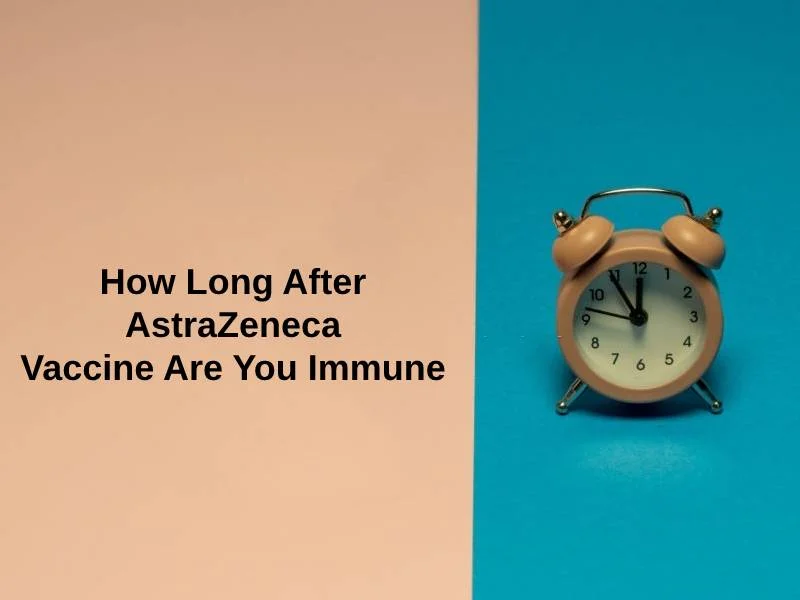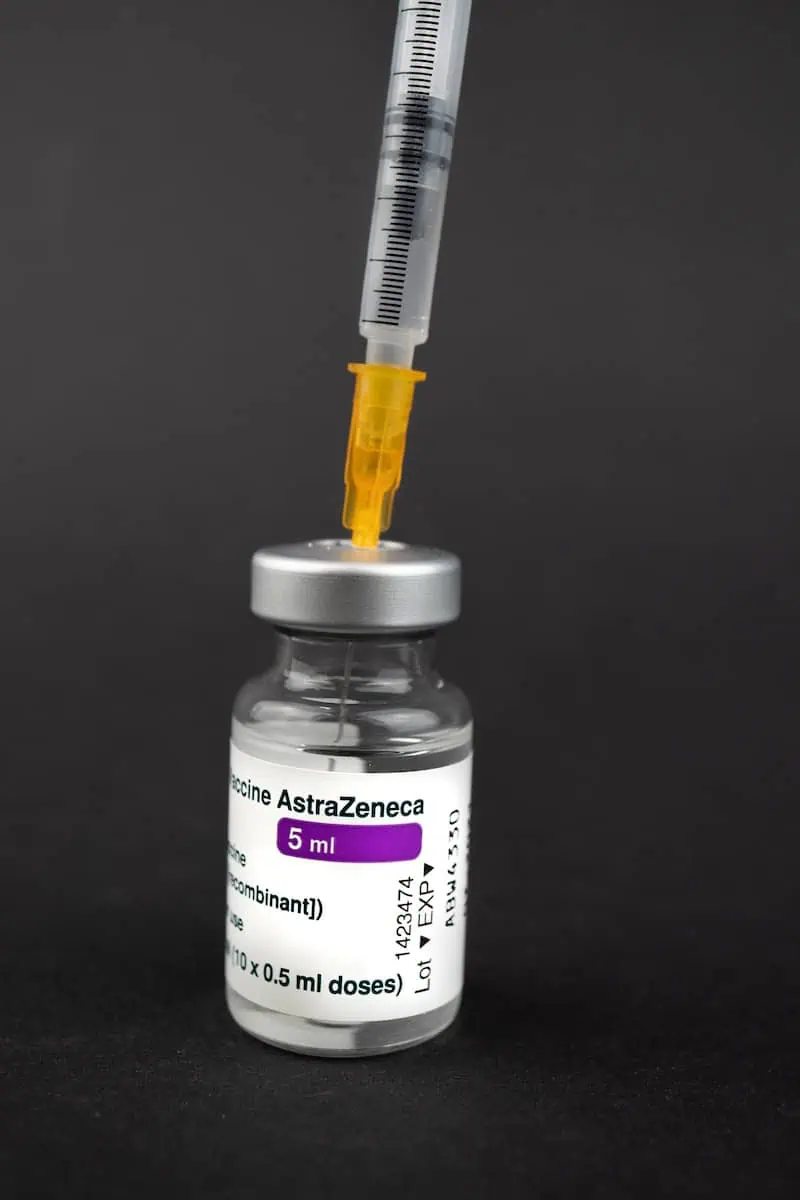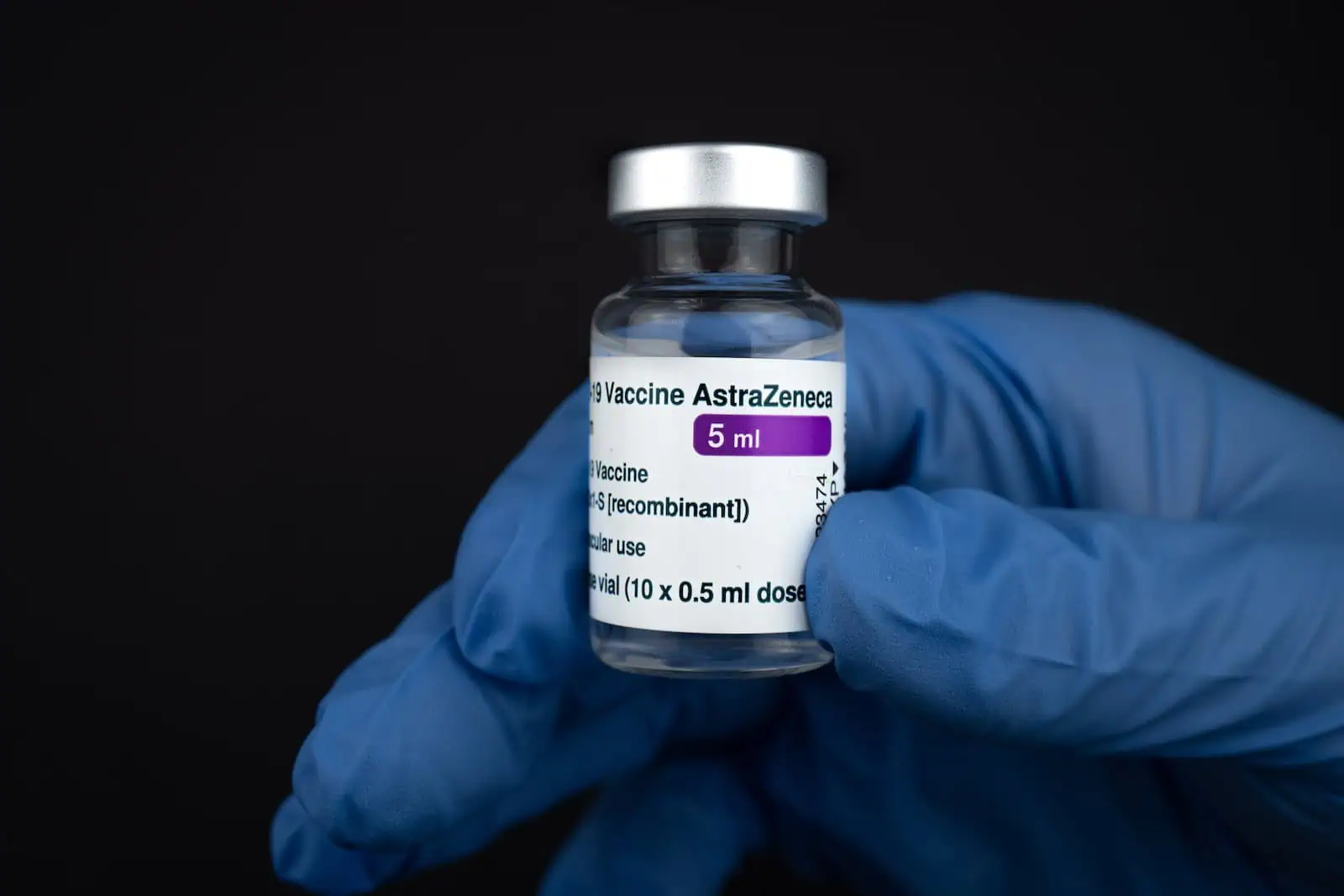Exact Answer: 7 – 14 days after 2nd dose
Packaged and sold under the names Vaxzevria and Covishield, the Oxford-AstraZeneca vaccine is administered to prevent the COVID-19 infection. This viral vector vaccine was the result of the collaboration between Oxford University, and AstraZeneca, the multinational pharmaceutical and biotechnology giant with British-Swedish roots.
With the strain of the COVID-19 virus becoming more and more unpredictable, it is important to get vaccinated as soon as possible, as the benefits outweigh the risks associated with the particular vaccine.
Like many other vaccines out there, the AstraZeneca COVID-19 vaccine requires 2 doses, before it could be fully effective as a COVID-19 infection prevention method.
Other vaccines include the Covaxin vaccine, Pfizer vaccine, Moderna vaccine, Sputnik V vaccine, and many more.

How Long After AstraZeneca Vaccine Are You Immune?
| Dose | Duration after the dose to become immune |
| 1st dose | At least 2 – 3 weeks |
| 2nd dose | 7 – 14 days |
The Oxford-AstraZeneca COVID-19 vaccine is administered in two separate doses of 0.5 ml each. The two doses are given approximately four to twelve weeks apart. However, with reference to WHO’s recommendation, the second dose of the AstraZeneca vaccine should be administered eight to twelve weeks after the first dose. This is because longer dose intervals result in higher efficacy of the vaccine, according to research.
Referring to a published analysis, the vaccine is approximately 76% efficient at enabling the prevention of symptomatic COVID-19 infections, beyond 22 days after receiving the first dose of the vaccine. But this number rises to 81.3% if and when the second dose of the vaccine is administered at or after 12 weeks of receiving the first dose.
After receiving the first dose of the AstraZeneca COVID-19 vaccine, you may build partial immunity from two to three weeks after the first dose. But remember that this immunity is short-lived, so you must still follow the strict protocols regarding social distancing, and wearing masks and gloves, after getting vaccinated.

It is the second dose of the AstraZeneca vaccine that truly stimulates the body to build stronger immunity against the COVID-19 virus. It takes at least seven to fourteen days (one week to 2 weeks), for the body to create solid and effective protection against the infection. After 14 days, you are said to be fully protected, having optimum immunity to fight the virus in the future.
Since it takes the vaccine several weeks to offer the highest amount of immunity that it could, you are advised to stay inside and follow all the necessary COVID-19 protocols. Since immunity hasn’t yet developed during the weeks right after getting the vaccine, keep in mind that you are still susceptible to COVID-19.
Why Does It Take That Long To Become Immune After AstraZeneca Vaccine?
The AstraZeneca vaccine contains an adenovirus that has been modified to consist of a gene that is responsible for the spike protein that is found on the surface of the COVID-19 virus. In this case, the research team worked with a chimpanzee adenovirus that has been modified. Adenoviruses are common and harmless when compared to COVID-19, and they only result in flu-like symptoms and common colds.
The adenovirus in the vaccine is specially engineered so it can’t replicate inside cells after it enters them, unlike found viruses.
When the vaccine is injected into the body, the adenoviruses inside enter the cells after the cells engulf them. Here, the adenovirus expertly replaces the cell’s original DNA with its own. This enables the cell to copy the gene for the COVID-19 spike protein into the mRNA. The mRNA allows more cells to produce and assemble the COVID-19 spike proteins, that combine to form spikes that stick to the surface of the cells.
This triggers an immune response from the immune system, and from the nearby immune cells.

The body’s activated B white blood cells start releasing antibodies in response to the antigens that are not present in cells. These antibodies hook onto the spike proteins or antigens and act as markers for identification. Lastly, killer T cells destroy those cells that are presenting antigens on their surface and those that are affected by COVID-19.
Memory B and T cells also play a part in this process as they store information about the antibodies required to fight the virus. They come into use when the body encounters the same infection in the future, where memory B and T cells instantly and successfully pump out the appropriate antibodies and destroy the impacted cells.
The aforementioned process is why it takes that long to build immunity against COVID-19, after receiving the vaccine.
Conclusion
In conclusion, the AstraZeneca COVID-19 vaccine comes in two doses, that are administered eight to twelve weeks apart. This allows the body to build immunity against the virus.
The vaccine can have several mild to moderate side effects such as soreness at the site of injection, fatigue, fever, chills, muscle aches, headache, and more. But these will go away in about 1 or 2 days.
Despite hearing about risky side effects such as blood clots as a result of the AstraZeneca vaccine, do not refrain from getting the vaccine, as it can greatly help you prevent infection, not only for yourself but also as a part of herd immunity.